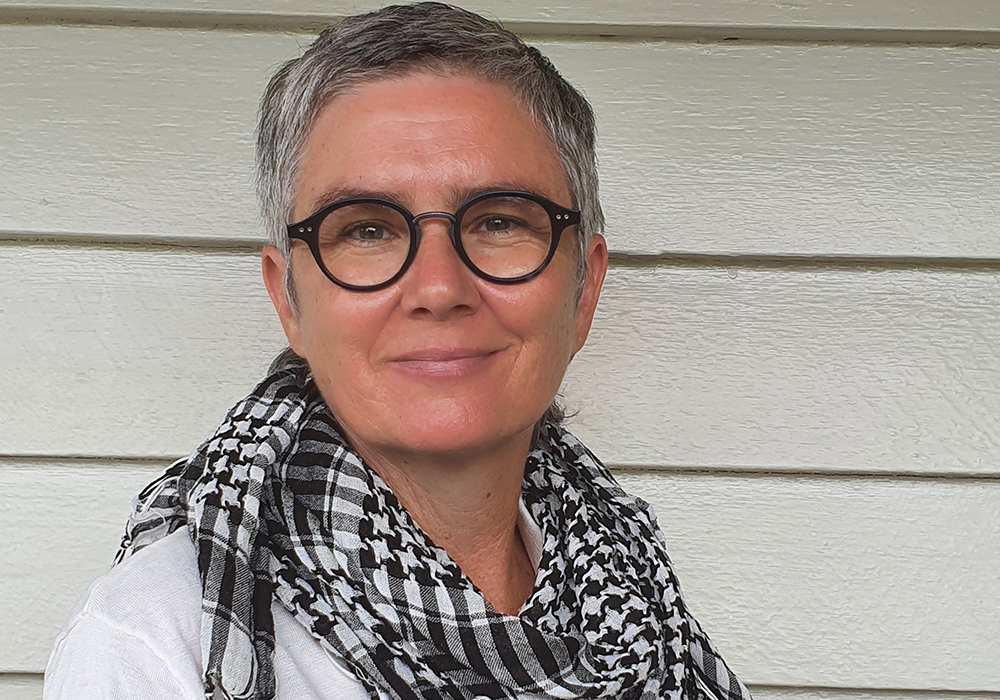Birdy Bird: A passion for problem solving


Birdy Bird never set out to pursue a particular career path, though looking back they see connections in the challenges they’ve taken on.
“I've been a technical rigger in the circus. I've been a seed collector for Greening Australia. I started Australia's first drink miles bar - the very first booze joint that only sold locally owned and made beer, wine and spirits – that still runs in Brisbane. I started studying to be a park ranger, then I went back to uni in my thirties and pushed my way through seven years of a Masters in Architecture, as a way of formalising a set of skills and a way of thinking,” they tell us.
Birdy never intended to be a “capital A architect,” but they wanted a structured approach to problem solving, “the strategic, analytical and design skills to craft the pathway from ‘I think we could do this, or I've done this before, but it didn't work,’ to a viable outcome.”
Birdy reflects that this passion for problem solving is innate to their character, and evident from early childhood.
“I was like this as a kid, just really into working out how things work and why things work and how they can work better. I was the kid who 'borrowed' a whole lot of ropes and pulleys off someone's boat and rigged up a flying fox in the backyard and charged everyone five cents to jump off the top of our olive tree and land on a mattress on the ground safely,” explains Birdy.
They tell us of a particular experience which highlights their curiosity and resolve:
“My mum and dad gave me a second-hand bike for my 10th birthday. It was a 10-speed Peugeot racing bike, and it was all rusted and it cost them 30 bucks from the trading post. Dad brought it home and said, ‘You can't ride it yet, it's not safe. We're going to have to pull it apart and put it back together, replace things that need replacing and know that it's safe for you to ride.’
“So he opens the garage door, lays down a whole lot of newspaper on the floor, gives me a can of WD40, a set of pliers, a shifter, and a screwdriver and says, ‘Okay, my advice is that when you take things off, you put them down in order, and when you want to put it back together again, you just reverse the order. Other than that, you're on your own.’ I had a good cry at the overwhelm, but I did it, and I asked for help when I needed help, and I got a bike to ride at the end of it.”
Their strategic thinking and adaptability have been put to great use in their work at the Indigenous Land and Sea Corporation , where they manage multiple projects up and down the East Coast of Australia aimed at supporting Aboriginal and Torres Strait Islander people with a vision for bettering their community.
This work may include the purchase of land or water rights, developing sustainable businesses connected to that land or water, or land management projects, such as building a ranger base or fencing on a grazing property, boats for surveying turtles or buses to drive artists from their art centre to the galleries.
Birdy signed up for the Centre for Social Impact's Graduate Certificate in Social Impact at UNSW after doing “a lot of research” into courses here in Australia and around the world, searching for a qualification that would suit their needs academically and ethically while also providing an opportunity to extend their networks and stay up to date with contemporary best practice.
They’ve completed three subjects and are now applying that characteristic drive and strategic thinking to their field project, which they describe as “a monster of a not-for-profit”.
“It's called Paying The Rent, and it is a voluntary reparation scheme. It targets the phenomenal amount of intergenerational wealth that's about to be passed from the baby boomer generation into the hands of gen X, through to millennials. We've got a shift in consciousness in our younger generations now, where more people are wanting to find ways to reconcile what it is to be here on stolen land. This is about decolonising the Australian economy through a voluntary reparation scheme.”
It's an ambitious project and one that Birdy knows will take an immense amount of work, consultation and collaboration, but they’re grateful to be undertaking this early phase with an academic framework and the support of a CSI scholarship.
“Behind the scenes I am already supported by a brains trust of Aboriginal and Torres Strait Islander people who will define the terms of reference and make sure that everything that is done is within the frame of land-rights, economic decolonisation and self-determination,” says Birdy.
“I am only looking at setting up the fundraising entity and a perpetual trust, it will be up to First Nations people to work out how to spend the money.”
